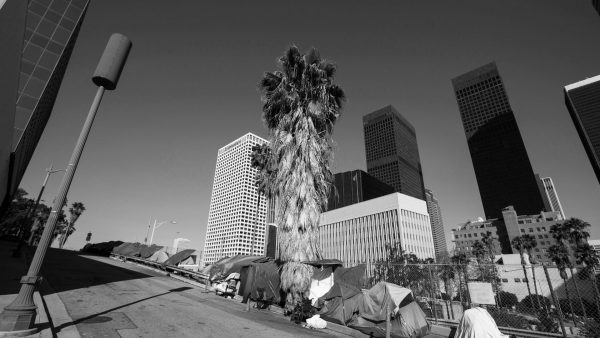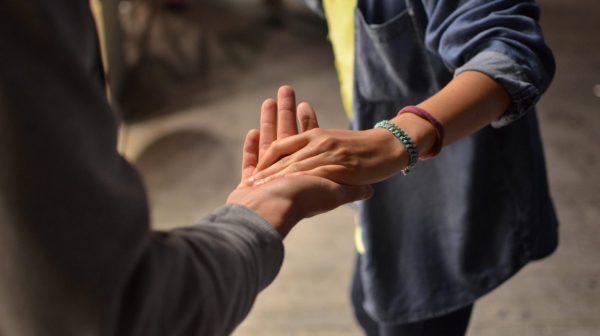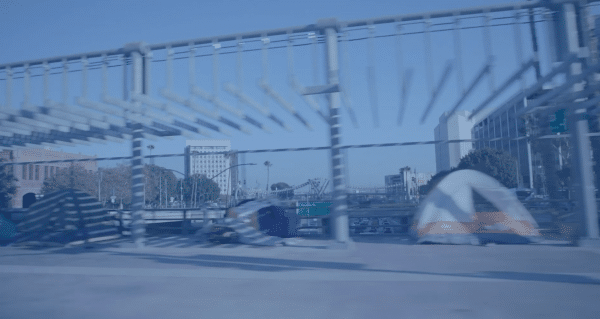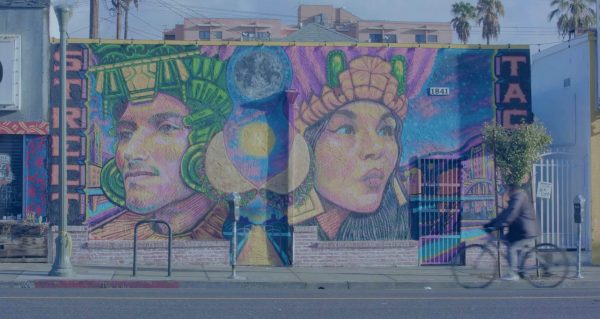HOMELESSNESS IS NOT A CRIME: SENATOR PÉREZ INTRODUCES GROUNDBREAKING PROTECTION BILL

Sacramento, California (March 25, 2025) — Yesterday Senator Sasha Renée Pérez (D-25) introduced the Homeless Rights Protection Act (SB 634), groundbreaking legislation that prevents criminalizing people experiencing homelessness engaged in necessary day-to-day survival activities. Senate Bill 634 prohibits local and state authorities from imposing penalties—including jail time or fines—on unhoused individuals for acts related to their basic survival, and protects those providing assistance to homeless individuals.
“I know what it’s like to lose loved ones to the homelessness crisis, and have seen the devastating impacts of policies that criminalize poverty. Following the U.S. Supreme Court’s ruling in Grants Pass v. Johnson, I feared that more California cities would seek to jail and fine individuals for simply being homeless. Those fears have become a reality,” said Senator Sasha Renée Pérez (D-Pasadena). “I’ve introduced SB 634 because it is critical for California to draw the line – issuing fines and jail time to people who have nowhere to live is inhumane. Threatening to charge charity workers for offering water to someone living in poverty is immoral. As Justice Sonia Sotomayor shared in her dissenting opinion in Grants Pass, ‘Sleep is a biological necessity, not a crime.’ Our legislation will stop punitive policies that perpetuate the cycle of poverty, so California can focus on real solutions to the homelessness crisis.”
This critical and transformative policy marks a shift, from ineffective, highly-politicized approaches to homelessness that create additional barriers to housing, to solutions that provide stability. By eliminating punitive policies, this bill addresses legal and financial obstacles that prevent vulnerable Californians from accessing housing, services, employment, and other essential support.
“People who have lived through homelessness, researchers, service providers, and even law enforcement, they all tell us the same thing: that arresting and fining people doesn’t just fail to address homelessness, it makes it harder to solve,” said Ann Oliva, CEO of National Alliance to End Homelessness. “I applaud Senator Pérez for bringing this bill forward so cities can stop trying to cut corners and can instead refocus on proven approaches to ending homelessness.”
The scale of California’s homelessness demands urgent solutions. The 2024 Homeless Point-in-Time Count recorded approximately 187,000 homeless individuals on a single night, with estimates suggesting 300,000 experienced homelessness throughout the year. California accounts for 24% of the nation’s homeless population—the highest of any state. Communities of color bear a disproportionate burden, with Black Californians experiencing the highest rates of homelessness relative to their share of the general population.
“Disability Rights California (DRC) applauds Senator Sasha Renée Pérez for introducing SB 634, a critically needed bill to uphold fundamental civil and human rights to the most marginalized Californians,” says Gregory Cramer, Associate Director of Public Policy at DRC. “This bill is a refreshing departure from the callous and futile anti-homeless ordinances that seek to criminalize or in debt unhoused Californians for being unable to enter the nation’s most expensive rental market. These ordinances disproportionately harm disabled people, who make up nearly 43% of California’s unhoused population. Nobody should face jail or insurmountable poverty because of government failure, and certainly, we should not be jailing people who supply food or survival gear to those in need.”
Two-thirds of California’s homeless population lives unsheltered, exposed to extreme weather, poor air quality, and other dangers. With only a fraction of the shelter beds we need available statewide, thousands die outdoors annually. Among those affected are older adults, veterans, youth, and domestic violence survivors. Nearly half report disabilities, with Black, Indigenous, and transgender individuals disproportionately impacted.
“The bill is a necessary step to ensure that California holds true to its values and honors the dignity of all of its residents,” said Brandon Greene, Director of Policy Advocacy for the Western Center on Law and Poverty. “Criminalizing people for engaging in necessary life sustaining activities is not only immoral but it is counterproductive to the racial and economic aims of our state.”
California’s homelessness crisis stems from a severe shortage of affordable housing for its poorest residents. Among the state’s 1.2 million extremely low-income households, over 1 million struggle with housing costs, with 936,000 spending more than half their income on rent. These Californians face impossible daily choices between making rent and meeting basic needs like food and healthcare.
“It is inhumane and unacceptable to criminalize houseless people for our state’s failure to build affordable housing and provide supportive services at the scale of the problem,” said Michelle Pariset, Director of Legislative Affairs with Public Advocates. “Post-Grants Pass, there is nothing preventing jurisdictions from acting on their worst impulses towards houseless people and several jurisdictions are enacting cruel and harmful ordinances – like the ones proposed in Fremont, San Jose, and Fresno. Senator Pérez understands that $1000 tickets won’t house anyone and we are thankful for her leadership.”
There are a number of ways that jail time, fines, and fees stemming from these ordinances contribute to pushing solutions further out of reach. Jailing people experiencing homelessness severs ties and undermines trust. Jail time makes it harder to get back into housing. Fines prolong homelessness. Fines and jail time double down on racial inequities. Criminal penalties make communities less safe.
“California’s goal should be to fight poverty, not to fight the poor. This becomes especially important when we consider our current national landscape, with ongoing attacks on vital public programs like Medicare, Medicaid, and Social Security, attacks on the VA, proposed tax cuts for the wealthy and tax increases for everyone else, and the targeting of vulnerable populations,” said Ishvaku Vashishtha, Equal Justice Works Fellow with Inner City Law Center. “These policies will deepen poverty, exacerbate inequality, and expose more people to housing instability. California can choose a better path, one that doesn’t punish people for their poverty and housing status.”
###
Media Contact: Jacqueline Burbank, Communications Manager, Inner City Law Center, jburbank@innercitylaw.org or (213) 947-7902
Media Contact: Sumeet Bal, Director of Communications, Public Advocates, sbal@publicadvocates.org, 917.647.1952





